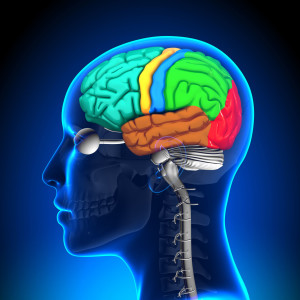Occipital Neuralgia & the Spine
Category: Spine Pain | Author: Stefano Sinicropi
 Occipital neuralgia is a big term and a scary-sounding condition. In this blog, we are going to dive into occipital neuralgia – its causes and when it can be resolved with minimally invasive spine surgery. Hopefully this information will clear up any confusion surrounding the condition and help patients make informed decisions about their care.
Occipital neuralgia is a big term and a scary-sounding condition. In this blog, we are going to dive into occipital neuralgia – its causes and when it can be resolved with minimally invasive spine surgery. Hopefully this information will clear up any confusion surrounding the condition and help patients make informed decisions about their care.
What is Occipital Neuralgia?
Occipital neuralgia is a condition affecting the occipital nerves (which originate at the top of the cervical spine and traverse all the way up the scalp). Common symptoms of occipital neuralgia can include any of the following:
- Headaches
- Light sensitivity
- Tenderness on the head
- Pain – either behind the eyes, at the base of the scalp, or on both sides of the head.
These symptoms occur when the occipital nerves are impacted or inflamed. The condition is often confused with migraine headaches and other similar conditions simply because the symptoms are so similar. Treatment for occipital neuralgia is different from that of migraine headaches, so a proper diagnosis is essential to effective treatment.
When can Spine Surgery Help?
Treating occipital neuralgia is multi-faceted, and depends directly on the underlying cause. Occipital neuralgia can be caused by a number of factors, including:
- Head trauma
- Tumors
- Osteoarthritis
- Degenerative discs in the neck
- Gout & Diabetes
Because there are so many potential causes, treatment methods vary wildly. On the conservative side or treatment, pain relievers and muscle relaxants can effectively reduce pain in certain patients. If that fails to work, steroid injections are another option.
If the neuralgia is the result of osteoarthritis or a degenerating spinal disc, a minimally invasive discectomy and fusion may be the best option to free up the nerves and relieve pain. Contact a physician who specializes in spine conditions if you experience any of the symptoms of occipital neuralgia, and get on a course of treatment to correct the underlying cause.